“There are still souls for whom love is the contact of two poetries, the fusion of two reveries.”
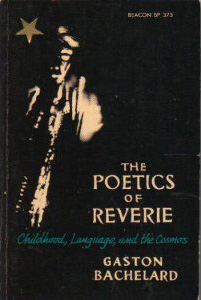 “Creative writing, like a day-dream,” Freud observed, “is a continuation of, and a substitute for, what was once the play of childhood.” But how, exactly, does the playful imagination weave dream and storytelling together to frame our creative experience?
“Creative writing, like a day-dream,” Freud observed, “is a continuation of, and a substitute for, what was once the play of childhood.” But how, exactly, does the playful imagination weave dream and storytelling together to frame our creative experience?
Gaston Bachelard (1884–1962) is one of the most wonderful — literally: full of wonder — philosophers of the twentieth century, yet one of the most underappreciated. His writings on poetics and the philosophy of science fall — rise, rather — somewhere between the erudite and the enchanting, but never more so than in his 1960 treatise The Poetics of Reverie: Childhood, Language, and the Cosmos(public library), published in English seven years after Bachelard’s death — an exploration of “the remarkable psychic productivity of the imagination” and its relationship to memory, happiness, and our capacity for love, as well as of poetry’s singular ability to catalyze our sense of wonder.
Bachelard writes:
In poetry, wonder is coupled with the joy of speech… The poetic image is in no way comparable, as with the mode of the common metaphor, to a valve which would open up to release pent-up instincts. The poetic image sheds light on consciousness in such a way that it is pointless to look for subconscious antecedents of the image… Poetry is one of the destinies of speech. In trying to sharpen the awareness of language at the level of poems, we get the impression that we are touching the man whose speech is new in that it is not limited to expressing ideas or sensations, but tries to have a future. One would say that poetic image, in its newness, opens a future to language.
But the greatest power of the poetic image, Bachelard argues, is in its ability to grant us fuller access to the soul, to consciousness, through reverie — a concept that comes closest to, but isn’t entirely equated with, psychology’s notion of“positive constructive daydreaming,” a special flight of the imagination. And yet he makes a necessary distinction between reverie and dreaming:
In contrast to a dream a reverie cannot be recounted. To be communicated, it must be written, written with emotion and taste, being relived all the more strongly because it is being written down.
In exploring how reverie evokes the realm of “written love,” Bachelard adds tohistory’s most beautiful definitions of love and reflects:
Written love … is going out of fashion, but the benefits remain. There are still souls for whom love is the contact of two poetries, the fusion of two reveries… To tell a love, one must write… Love is never finished expressing itself, and it expresses itself better the more poetically it is dreamed. The reveries of two solitary souls prepare the sweetness of loving… The reality of love is mutilated when it is detached from all its unrealness.
He returns to the question of dreams — a subject that, despite all the scientific advancements of understanding in the decades since Bachelard’s time, remains a mystery — and reflects:
One might wonder whether there really is a consciousness of dreams. A dream can be so strange that it seems that another subject has come to dream with us. “A dream visited me.” That is certainly the formula which indicates the passivity of great nocturnal dreams. To convince ourselves that they are really ours, we must reinhabit these dreams. Afterwards we make up accounts of them, stories from another time, adventures from another world… The teller of dreams sometimes enjoys his dream as an original work. In it he experiences a delegated originality; and hence he is very much surprised when a psychoanalyst tells him that another dreamer has known the same “originality.” The dream-dreamer’s conviction of having lived the dream he is recounting must not deceive us. It is a reported conviction which is reinforced each time he retells the dream. There is certainly no identity between the subject who is telling and the subject who dreamed.
[...]Instead of looking for the dream in reverie, people should look for reverie in the dream.
Even more powerfully, dream and reverie conspire together to form a gateway to happiness. Bachelard writes:
Reverie illustrates repose for a being… it illustrates well-being. The dreamer and his reverie enter totally into the substance of happiness.[...]The whole universe comes to contribute to our happiness when reverie comes to accentuate our repose. You must tell the man who wants to dream well to begin by being happy. Then reverie plays out its veritable destiny; it becomes poetic reverie and by it, in it, everything becomes beautiful.[...]Poetic reverie gives us the world of worlds. Poetic reverie is a cosmic reverie. It is an opening to a beautiful world, to beautiful worlds. It gives the I a non-I which belongs to the I: my non-I. It is this “my non-I” which enchants the I of the dreamer and which poets can help us share.[...]Reverie helps us inhabit the world, inhabit the happiness of the world.
At its highest potentiality, reverie touches on the cosmic, and in doing so, liberates our solitude — that essential capacity to be alone. Bachelard writes:
The cosmic reverie … is a phenomenon of solitude which has its roots in the soul of the dreamer.[...]Cosmic reveries separate us from project reveries. They situate us in a world and not in a society. The cosmic reverie possesses a sort of stability or tranquility. It helps us escape time. It is a state. Let us get to the bottom of its essence: it is a state of mind… Poetry supplies us with documents for aphenomenology of the soul. The entire soul is presented in the poetic universe of the poet.[...]The soul does not live on the edge of time. It finds its rest in the universe imagined by reverie… Cosmic images are possessions of the solitary soul which is the principle of all solitude.
Therein lies the greatest gift of poetic reverie:
Reverie gives us the world of a soul [and] a poetic image bears witness to a soul which is discovering its world, the world where it would like to live and where it deserves to live… Poetry forms the dreamer and his world at the same time.[...]Poets lead us into cosmoses which are being endlessly renewed.
The Poetics of Reverie is a superb read in its entirety. Complement it with Muriel Rukeyser on how poetry expands our lives, James Dickey on how to read a poem, and Mary Oliver on the secret of great poetry.
 Brain Pickings has a free weekly newsletter. It comes out on Sundays and offers the week’s best articles. Here’s what to expect. Like? Sign up.
Brain Pickings has a free weekly newsletter. It comes out on Sundays and offers the week’s best articles. Here’s what to expect. Like? Sign up.The Psychology of Your Future Self and How Your Present Illusions Hinder Your Future Happiness
“Human beings are works in progress that mistakenly think they’re finished.”
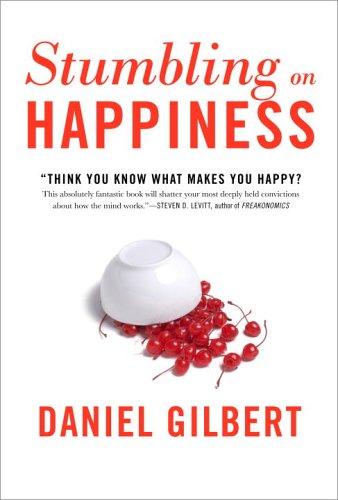 Philosopher Joshua Knobe recently posed a perplexing question in contemplating the nature of the self: If the person you will be in 30 years — the person for whom you plan your life now by working toward career goals and putting money aside in retirements plans — is invariably different from the person you are today, what makes that future person “you”? What makes them worthy of your present self’s sacrifices and considerations? That’s precisely what Harvard psychologist Daniel Gilbertexplores in this short and pause-giving TED talk on the psychology of your future self and how to avoid the mistakes you’re likely to make in trying to satisfy that future self with your present choices. Picking up from his now-classic 2006 book Stumbling on Happiness (public library), Gilbert argues that we’re bedeviled by a “fundamental misconception about the power of time” and a dangerous misconception known as “the end of history illusion” — at any point along our personal journey, we tend to believe that who we are at that moment is the final destination of our becoming. Which, of course, is not only wrong but a source of much of our unhappiness.
Philosopher Joshua Knobe recently posed a perplexing question in contemplating the nature of the self: If the person you will be in 30 years — the person for whom you plan your life now by working toward career goals and putting money aside in retirements plans — is invariably different from the person you are today, what makes that future person “you”? What makes them worthy of your present self’s sacrifices and considerations? That’s precisely what Harvard psychologist Daniel Gilbertexplores in this short and pause-giving TED talk on the psychology of your future self and how to avoid the mistakes you’re likely to make in trying to satisfy that future self with your present choices. Picking up from his now-classic 2006 book Stumbling on Happiness (public library), Gilbert argues that we’re bedeviled by a “fundamental misconception about the power of time” and a dangerous misconception known as “the end of history illusion” — at any point along our personal journey, we tend to believe that who we are at that moment is the final destination of our becoming. Which, of course, is not only wrong but a source of much of our unhappiness.Human beings are works in progress that mistakenly think they’re finished. The person you are right now is as transient, as fleeting and as temporary as all the people you’re ever been. The one constant in our lives is change.
Gilbert explores this paradox in greater, pleasantly uncomfortable-making, strangely reassuring detail in Stumbling on Happiness — one of these essential books on the art-science of happiness. He writes:
What would you do right now if you learned that you were going to die in ten minutes? Would you race upstairs and light that Marlboro you’ve been hiding in your sock drawer since the Ford administration? Would you waltz into your boss’s office and present him with a detailed description of his personal defects? Would you drive out to that steakhouse near the new mall and order a T-bone, medium rare, with an extra side of the really bad cholesterol?The things we do when we expect our lives to continue are naturally and properly different than the things we might do if we expected them to end abruptly. We go easy on the lard and tobacco, smile dutifully at yet another of our supervisor’s witless jokes, read books like this one when we could be wearing paper hats and eating pistachio macaroons in the bathtub, and we do each of these things in the charitable service of the people we will soon become. We treat our future selves as though they were our children, spending most of the hours of most of our days constructing tomorrows that we hope will make them happy. Rather than indulging in whatever strikes our momentary fancy, we take responsibility for the welfare of our future selves, squirreling away portions of our paychecks each month so they can enjoy their retirements on a putting green, jogging and flossing with some regularity so they can avoid coronaries and gum grafts, enduring dirty diapers and mind-numbing repetitions of The Cat in the Hat so that someday they will have fat-cheeked grandchildren to bounce on their laps. Even plunking down a dollar at the convenience store is an act of charity intended to ensure that the person we are about to become will enjoy the Twinkie we are paying for now. In fact, just about any time we want something — a promotion, a marriage, an automobile, a cheeseburger — we are expecting that if we get it, then the person who has our fingerprints a second, minute, day, or decade from now will enjoy the world they inherit from us, honoring our sacrifices as they reap the harvest of our shrewd investment decisions and dietary forbearance.[But] our temporal progeny are often thankless. We toil and sweat to give them just what we think they will like, and they quit their jobs, grow their hair, move to or from San Francisco, and wonder how we could ever have been stupid enough to think they’d like that. We fail to achieve the accolades and rewards that we consider crucial to their well-being, and they end up thanking God that things didn’t work out according to our shortsighted, misguided plan. Even that person who takes a bite of the Twinkie we purchased a few minutes earlier may make a sour face and accuse us of having bought the wrong snack.
This gives another layer of meaning to Albert Camus’s assertion that “those who prefer their principles over their happiness, they refuse to be happy outside the conditions they seem to have attached to their happiness.” Our in-the-moment principles and attachments, after all, may be of no concern to our future selves in their pursuit of happiness.
In the remainder of Stumbling on Happiness, Gilbert, who argues that “the mistakes we make when we try to imagine our personal futures are also lawful, regular, and systematic,” explores the sometimes subtle, sometimes radical changes we can make in our everyday cognitive strategies in order to avoid ending up unhappy and disappointed by unlearning because we set goals for the people we are when we set them rather than the people we become when we reach them.
Albert Camus on Happiness and Love, Illustrated by Wendy MacNaughton
“If those whom we begin to love could know us as we were before meeting them … they could perceive what they have made of us.”
 In this new installment of the Brain Pickings artist series, I’ve once again teamed up with the wonderfully talented Wendy MacNaughton, on the heels of our previous collaborations onfamous writers’ sleep habits, Susan Sontag’s diary highlights on love and on art, Nellie Bly’spacking list, Gay Talese’s taxonomy of New York cats, and Sylvia Plath’s influences. I asked MacNaughton to illustrate another of my literary heroes’ thoughts on happiness and love, based on my highlights from Notebooks 1951–1959 (public library) — the published diaries of French author, philosopher, and Nobel laureateAlbert Camus, which also gave us Camus onhappiness, unhappiness, and our self-imposed prisons.
In this new installment of the Brain Pickings artist series, I’ve once again teamed up with the wonderfully talented Wendy MacNaughton, on the heels of our previous collaborations onfamous writers’ sleep habits, Susan Sontag’s diary highlights on love and on art, Nellie Bly’spacking list, Gay Talese’s taxonomy of New York cats, and Sylvia Plath’s influences. I asked MacNaughton to illustrate another of my literary heroes’ thoughts on happiness and love, based on my highlights from Notebooks 1951–1959 (public library) — the published diaries of French author, philosopher, and Nobel laureateAlbert Camus, which also gave us Camus onhappiness, unhappiness, and our self-imposed prisons.
The artwork is available as a print on Society6 and, as usual, we’re donating 50% of proceeds to A Room of Her Own, a foundation supporting women writers and artists. Enjoy!
If those whom we begin to love could know us as we were before meeting them … they could perceive what they have made of us.
When love ceases to be tragic it is something else and the individual again throws himself in search of tragedy.
Betrayal answers betrayal, the mask of love is answered by the disappearance of love.
For me, physical love has always been bound to an irresistible feeling of innocence and joy. Thus, I cannot love in tears but in exaltation.
The loss of love is the loss of all rights, even though one had them all.
Those who prefer their principles over their happiness, they refuse to be happy outside the conditions they seem to have attached to their happiness.
It is not humiliating to be unhappy. Physical suffering is sometimes humiliating, but the suffering of being cannot be, it is life.
The end of their passion consists of loving uselessly at the moment when it is pointless.
At times I feel myself overtaken by an immense tenderness for these people around me who live in the same century.
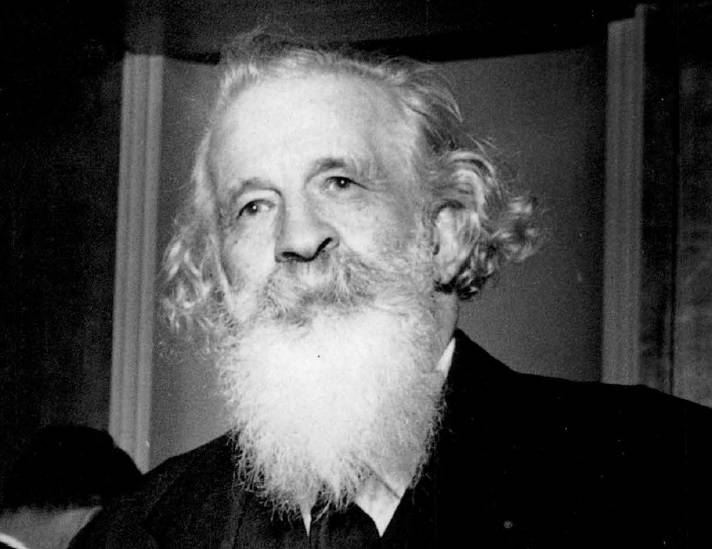
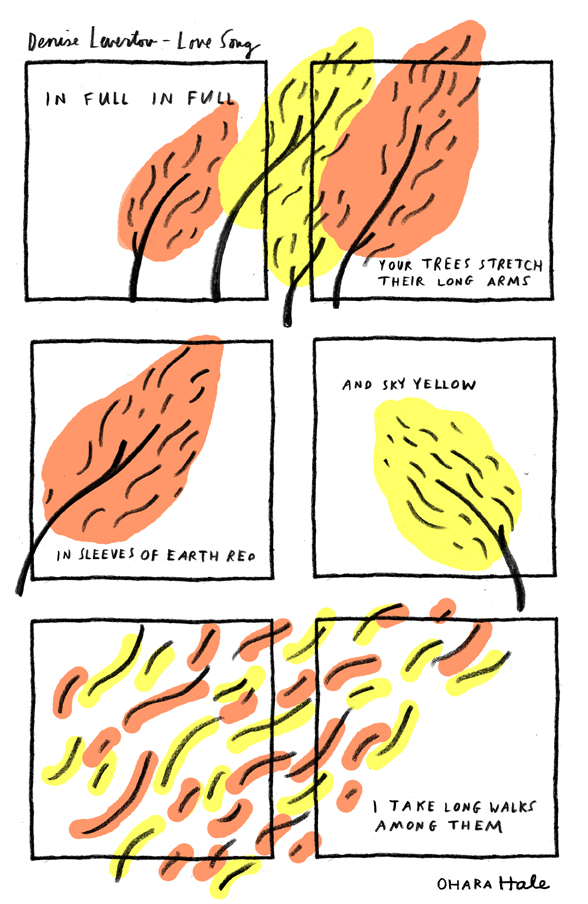
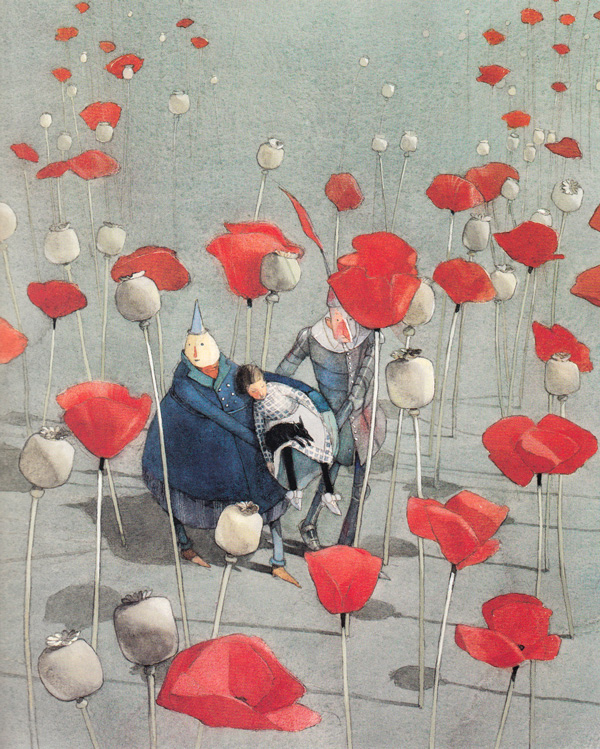
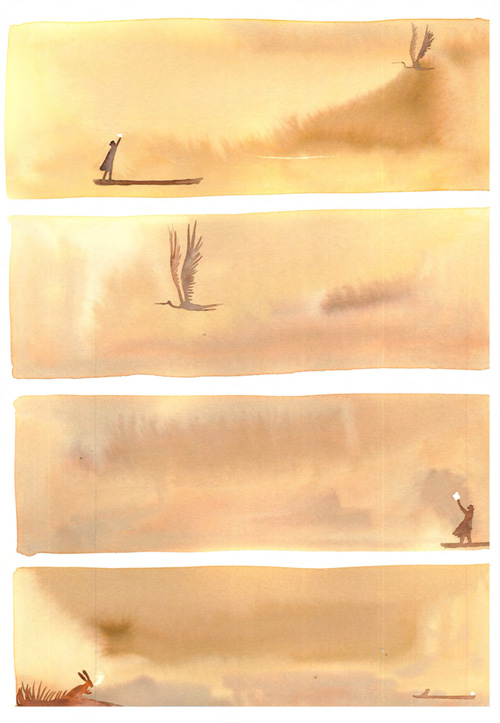
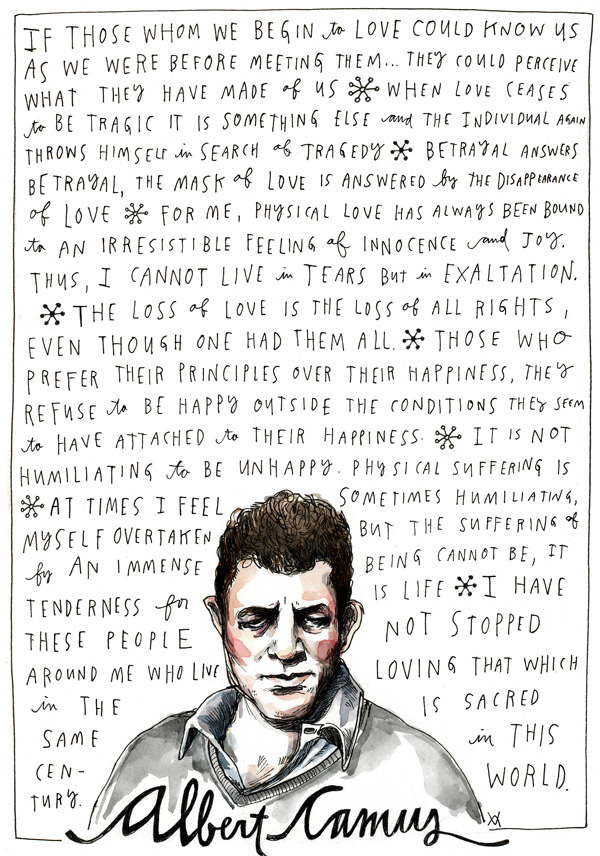
Aucun commentaire:
Enregistrer un commentaire